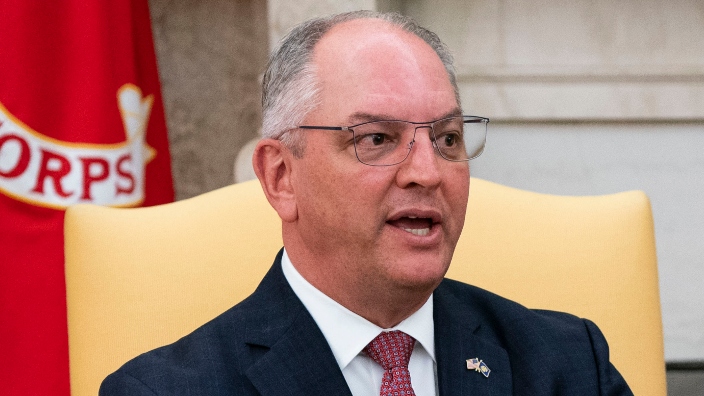Governor expected to sign bill that releases some ’10/6 lifers’ who had received life sentences
The bill Louisiana lawmakers passed Thursday gives parole eligibility to approximately 20 people, most of whom are Black.
Democratic Louisiana Governor John Bel Edwards is expected to sign a bill into law that will provide parole eligibility to some inmates who had received life sentences even after they were told they would be released after 10 years and six months of good behavior.
According to The Huffington Post, the bill Louisiana lawmakers passed Thursday will provide parole eligibility to approximately 20 people — the majority of whom are Black — who have been imprisoned at least 50 years.

The so-called “10/6 lifers” wound up facing true life sentences after the Pelican State in the 1970s changed its law amending the minimum amount of time that could be served for a life sentence.
Louisiana Senate Bill 273 was introduced by state Sen. Franklin Foil, a Republican, who conceded that there may be people in prison who were wrongfully convicted by a jury. He contends his bill releases prisoners who pleaded guilty because they made deals with a state that failed to uphold its end of their agreements. Another bill, introduced by state Sen. Regina Barrow, a Democrat, would have also released some lifers who were convicted by a jury.
Prior to 1973, people who had been convicted and received life sentences served a minimum of 10 years and six months. That was later amended to a 20-year minimum, then later amended to 40 years. In 1979, Louisiana lawmakers took away parole eligibility altogether for people serving life sentences.
“These bills affect the men who have been incarcerated longer than anyone else in Louisiana,” said Andrew Hundley, executive director of the Louisiana Parole Project. “They are in their 70s and 80s and have served 50 or more years. We have to ask ourselves: What’s the value to public safety for their continued incarceration?”
The Louisiana Parole Project has been providing support to 10/6 lifers recently released, people like Leroy Grippen, who pleaded guilty to armed robbery and aggravated rape charges in 1970, thinking he would be free in the summer of 1981 instead of facing an all-white Southern jury more likely to convict then electrocute the then-23-year-old defendant. Instead, Grippin did not leave prison until October 2021. He was then 73, having spent 70% of his life behind bars.
“I still feel like they got me locked down,” Grippen told The Huffington Post. “I ain’t know I was gonna feel this way, but I do. I feel sometimes like I’m in a world all by myself. I don’t know nobody. I don’t know where to go.”
“We would have preferred a solution that included relief for all 10/6 lifers,” said Hundley. “But we are encouraged that some of these men may not die in prison.”
TheGrio is FREE on your TV via Apple TV, Amazon Fire, Roku, and Android TV. Please download theGrio mobile apps today!


